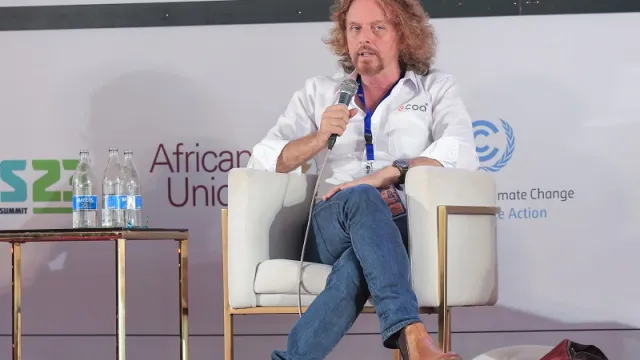BURN secures Sh1.9Bn to boost clean cookstove access

BURN secures Sh1.9Bn to boost clean cookstove access
Clean cooking appliance maker BURN has secured a Kes1.9 billion ($15 million) investment from the European Investment Bank (EIB) to enhance the company’s manufacture and distribution of energy-efficient products to over one million households in East Africa.
The investment was announced at the margins of the World Bank/IMF Annual Meetings in Washington. In a statement, BURN said the funding will help reduce indoor air pollution in homes, a challenge that currently causes four million annually especially among women in developing countries.
“BURN has already brought our unique PAYC electric cooking solution to thousands of households in Kenya and Tanzania that were previously relying on traditional charcoal stoves. This investment by EIB will help us transition over a million low-income households to cooking with electricity, allowing them to cook on grids that are 80-95 percent powered by renewable energy,” noted Peter Scott, Founder and CEO of BURN.
EIB Group President, Nadia Calviño said, “The investment that we have agreed today is not just about improving lives, but saving them as well. With relatively simple technology for clean cooking, we will strengthen communities, especially by protecting the health of women, and their families.”
Currently, BURN says it has distributed over five million clean cookstoves in Africa, positively impacting the lives of over 25 million people and preventing 26 million tonnes of CO2 emissions from entering the atmosphere.
The ECOA Induction Cooker (IDC) is equipped with Pay As You Cook (PAYC) technology, integrated directly with mobile money payment systems and the ECOA Mobile App, allowing users to pay small amounts via their mobile phones.
Read also: BURN listed in Time100 most influential firms
Bundled with a high-quality, three-piece stainless steel induction cookware set, the ECOA Induction cooker reduces indoor air pollution, decreases cooking time by approximately 70 percent, and saves households money on cooking fuels.
The electric cooking appliances also generate carbon credits by using integrated cellular-enabled IoT technology that allows effective, real-time, and end-to-end monitoring of energy usage.
These electric appliances are estimated to reduce roughly 2.5 tonnes of carbon emissions annually and contribute to EIB’s climate action, gender equality, and economic development objectives.
The financing support to BURN is through the Desiree Investment Envelope under the African, Caribbean, and Pacific Impact Finance Envelope, a financing package from the European Commission that aims to support the participation by the EIB in high-risk projects in ACP countries to support greater investments in energy efficiency and electrification ventures.
The IFE supports projects that generate superior developmental impact with the overarching objective of poverty reduction through developing the private sector by taking a higher risk of investment for high developmental impact.



